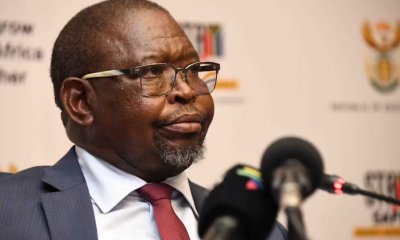Loadshedding
Eskom’s Ability to Borrow Further Funds in Doubt, Warns Energy Expert

According to an energy expert, Eskom cannot afford to borrow more money. The South African power utility finds itself in a precarious financial position as it seeks to expand the national grid. According to energy expert Tshepo Kgadima, the power company’s plan to secure additional funds for this endeavour is highly implausible.
EWN reports that During a recent media briefing, the Minister of Electricity, Kgosientsho Ramokgopa, provided an update on the Energy Action Plan. He emphasised the government’s intention to collaborate with the private sector to finance the grid expansion project, an essential step in improving the country’s power generation.
Eskom faces a significant challenge in realising its ambitions to expand the national grid in the next fiscal year. The endeavour will require over R100 billion in funding, a substantial sum given Eskom’s ongoing reliance on bailouts from the National Treasury.
While the government is exploring establishing a funding model for this ambitious project, it’s clear that Eskom lacks the financial capacity to proceed without active involvement from the private sector.
Also read: Eskom Urges South Africans to Reduce Usage to Prevent Higher Stages of Load Shedding
Minister Ramokgopa believes that partnering with private entities will facilitate the expansion of power transmission and attract much-needed investment to the sector.
Tshepo Kgadima, however, expresses scepticism regarding Eskom’s ability to secure additional credit, even with private sector participation. He notes that Eskom has reached a point where its cash flow is insufficient to service its existing debt despite the substantial R250 billion infusion from the Treasury.
Parliament’s approval of this project is crucial to expedite Eskom’s efforts to expand the national grid. In recent times, Eskom has been grappling with load shedding. However, recent improvements in generation capacity have allowed for lower load-shedding stages.
Eskom’s financial challenges remain a concern, and the collaboration with the private sector is viewed as a potential lifeline to support the country’s electricity infrastructure expansion goals. However, the utility’s ability to manage its debt and secure additional funds will be pivotal in determining the success of these ambitious plans.
Also read:
Picture: X / GovernmentZA
Follow us on Google News.






















